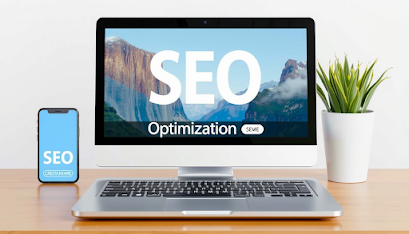Search Engine Optimization (SEO) is the lifeline of digital marketing, driving organic traffic and improving the visibility of websites on search engines. In an era where online presence determines the success of businesses, understanding and implementing SEO effectively is crucial. This article explores the fundamentals of SEO, its importance, and actionable strategies to optimize your website for better results.
What is SEO?
SEO stands for Search Engine Optimization, a process aimed at improving a website's visibility on search engine results pages (SERPs). By optimizing various aspects of your site and content, you make it easier for search engines like Google, Bing, or Yahoo to understand, rank, and display your pages for relevant searches.
SEO can be divided into three primary categories:
On-Page SEO: Optimizing content, meta tags, keywords, and internal links.
Off-Page SEO: Building backlinks and improving domain authority.
Technical SEO: Ensuring site speed, mobile-friendliness, and a well-structured website.
Why is SEO Important?
Boosts Organic Traffic: SEO improves your website's ranking, making it more likely for users to click on your link.
Builds Credibility: Websites that rank higher are perceived as more trustworthy by users.
Cost-Effective: Unlike paid ads, SEO provides long-term benefits without recurring costs.
Enhances User Experience: SEO focuses on creating a seamless, fast, and user-friendly site.
Drives Conversions: With targeted strategies, SEO attracts the right audience, increasing the likelihood of conversions.
How to Use SEO Effectively
Conduct Keyword Research
Use tools like Google Keyword Planner, Ahrefs, or SEMrush to identify relevant keywords.
Target long-tail keywords with lower competition but high intent.
Integrate keywords naturally into your content, titles, and meta descriptions.
Optimize On-Page Elements
Write compelling and unique title tags and meta descriptions.
Use headers (H1, H2, H3) to structure your content for readability.
Include internal and external links to improve navigation and provide context.
Create High-Quality Content
Focus on providing value to your audience through informative, engaging, and well-researched content.
Use visuals like images, videos, and infographics to enhance content appeal.
Keep your content updated to stay relevant.
Build Backlinks
Reach out to reputable websites for guest blogging opportunities.
Create shareable content to attract organic backlinks.
Engage in broken link building to replace outdated links with your content.
Enhance Technical SEO
Ensure your website is mobile-friendly and loads quickly.
Fix broken links and crawl errors using tools like Google Search Console.
Implement structured data (schema markup) to improve how search engines understand your content.
Summary
SEO is an essential tool for businesses and individuals aiming to establish a strong online presence. By optimizing your website for search engines, you can attract the right audience, build credibility, and drive sustainable growth. The key to effective SEO lies in understanding your audience, creating valuable content, and staying up-to-date with search engine algorithms.
Get Your FREE GUIDE — “Social Media Success Scripts for Network Marketers”

Comments
Post a Comment